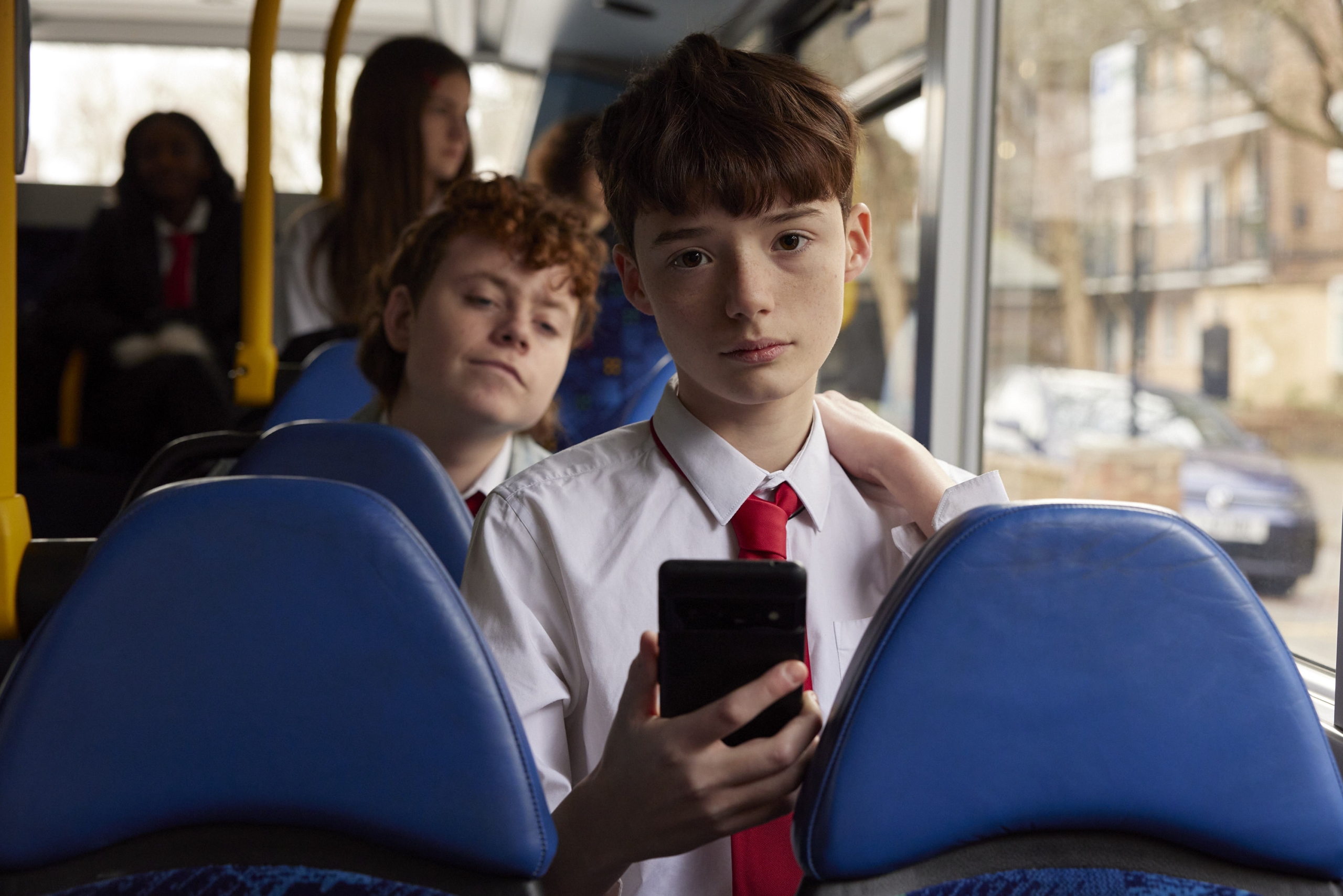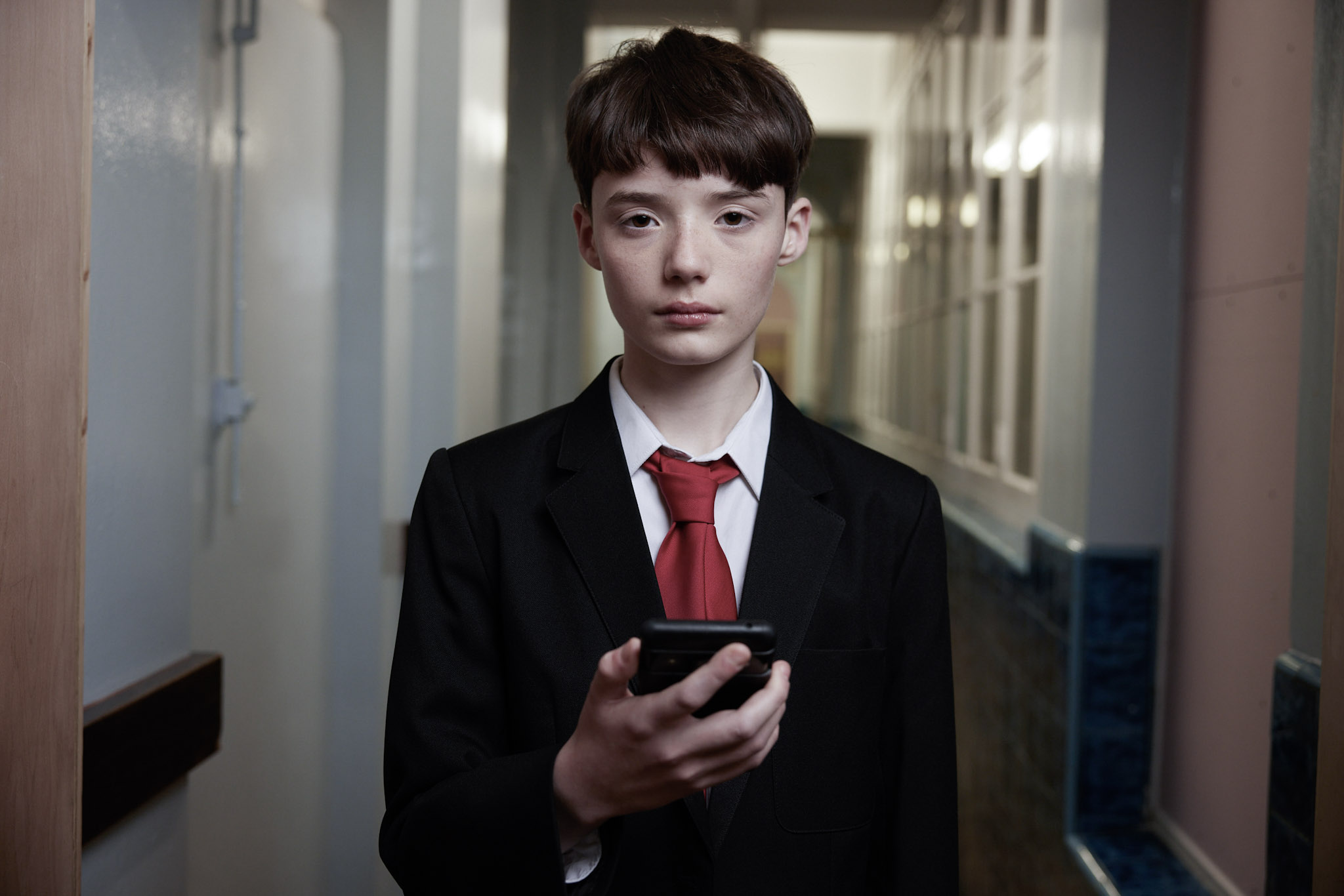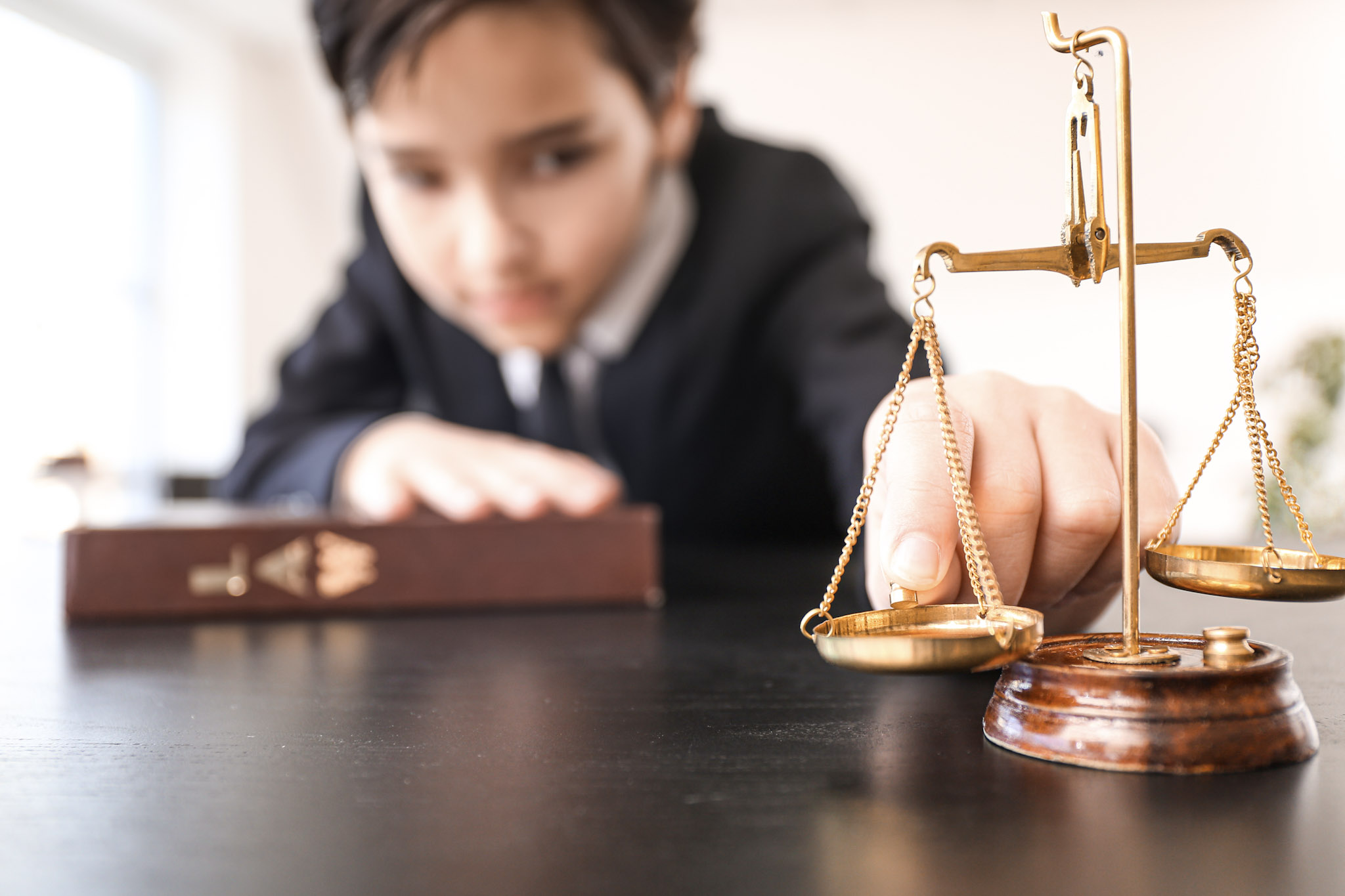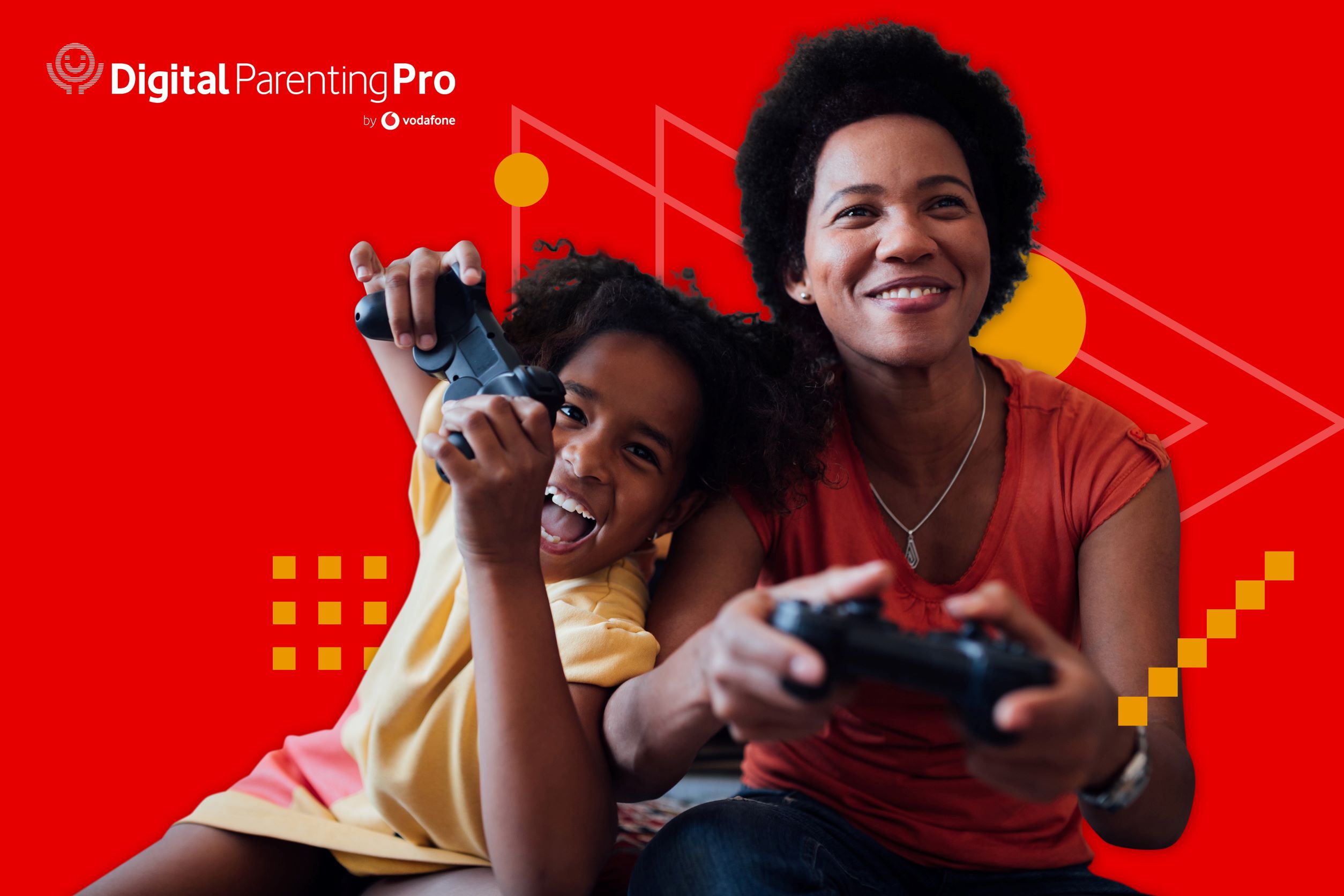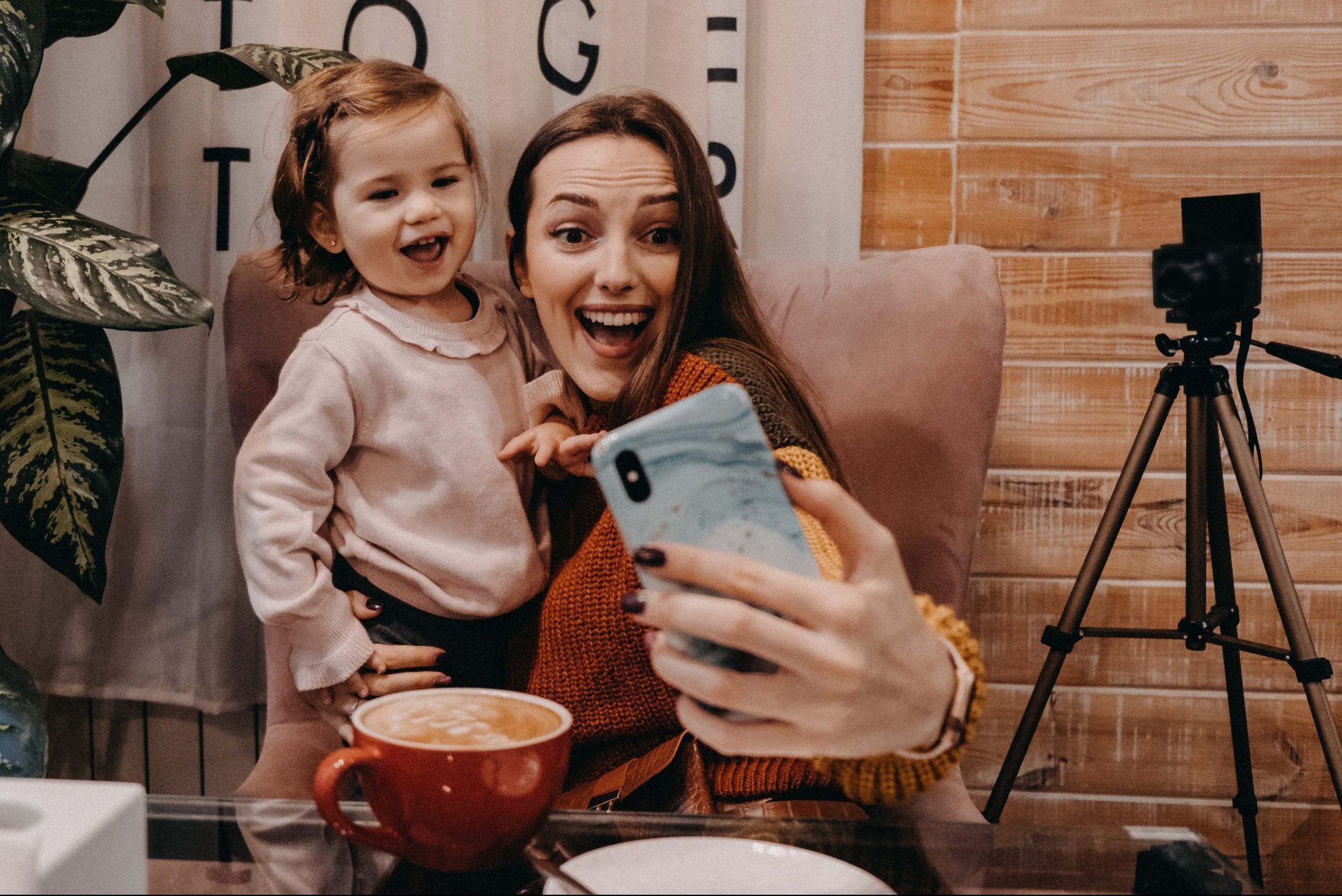If you’re a parent struggling to talk to your adolescent or preteen about the worrying internet content they’re consuming, these tips from a clinical psychologist could help.
Dr Elly Hanson isn’t just a clinical psychologist with years of experience, both in the NHS and in private practice. She’s also a parent. All of this makes her well-suited to advise on one of the most delicate areas of modern parenting – talking to your teenager (or preadolescent) about the problematic videos, posts, chats and other content they may encounter and engage with on the internet.
Parents of boys may feel especially worried, as Vodafone research has revealed that 69% of preadolescent boys have already encountered misogynistic content online. Some encounter it within 60 seconds of logging on.
Here’s what you should bear in mind.
Ice breaker
If your son has started repeating negative views after encountering them online, then it’s tempting to lay down the law in a stern and scolding manner. However, Dr Hanson emphasises the importance of taking a non-judgmental attitude and approach. “If boys feel judged and are made to feel guilty, then that can backfire. They could then pull back from you, pulling up the drawbridges,” she told Vodafone UK News.
“You can robustly challenge negative attitudes, while also not judging them as a person. Start with a conversation about why they have come to that attitude, or where has it come from. Draw it back to who’s promoting it, getting them to think critically about that content and its source.”
Teaching your kids to question what they see online, on TV and in the papers
On Safer Internet Day, we give parents tips on how to protect kids against dodgy TikTok videos, Facebook conspiracy theories, fake news and unreliable social media influencers.
Some parents may find it daunting to start such conversations if they’re unfamiliar with the particular space within online culture – whether it’s a particular social media app or game – that their child spends time in. Vodafone’s Digital Parenting and Digital Parenting Pro resources can help as starting points, so that you don’t have to start with no knowledge whatsoever and thus potentially undermine your own authority.
Even so, Dr Hanson suggests leveraging any such lack of deep knowledge into an opportunity. Showing curiosity in their interests, perhaps asking them how a particular app feature or bit of gameplay works, can be invaluable as an icebreaker.
Superiority complex
To better tackle the harmful views that now have a hold on your child’s imagination, according Dr Hanson, it can be helpful to understand if there are any factors in your child’s life that could have made him more susceptible.
For example, if he has a grievance, real or imagined, with a girl then that may explain why he is now receptive to misogynistic content on the internet. Starting a conversation with him about how it’s better to run the risk of being hurt by being open to relationships, rather than treating all girls as untrustworthy or as objects, would be a way forwards. The goal is to show him that accepting vulnerability as an inherent part of life is ultimately more rewarding, rather than being constantly aggressive and defensive.
‘We need parental controls to protect our kids, but we also need to talk’
As Vodafone UK launches Digital Parenting Pro, a content controls hub for parents and carers, Nicki Lyons, Chief Corporate Affairs & Sustainability Officer, reflects on how resources like this can protect kids from unsuitable content and help families have more informed conversations around online safety.
Many extremist groups online are attractive because they foster a sense of exclusivity and superiority among their members. To help counteract this, Dr Hanson suggests appealing to the anti-authoritarian streak that many teenagers possess.
“Teenagers like to be one step ahead and they don’t want to be anyone’s fool. Well, let’s harness that. Talk to them about the real powers that are trying to shape them for their own profit – this in turn invites them to focus their energies on the right target,” Dr Hanson told Vodafone UK News.
It can also help to point out the methods that harmful, extremist influencers often use. Key to how they operate is tempting you to see yourself or your group (in this case, males) as better or more deserving than others. But this ultimately pales in comparison to enjoying truly meaningful connections with people ‘outside’ your ‘group’.
Triggering empathy
Another approach suggested by Dr Hanson is to try to trigger their sense of empathy.
She cites the common example of online misogynist groups sharing videos of girls making mistakes, such as while performing a dance move, and then relentlessly mocking and insulting them. If your teenage son participates in such activities, asking them how he would feel in the girl’s place, or if it was their sister, mother or friend being targeted, may prompt him to critically re-evaluate his participation.
AI ‘Aggro-rithms’: young boys are served harmful content within 60 seconds of being online
On Safer Internet Day 2024, Vodafone released a new film ‘The Rise of the Aggro-rithm’ to highlight the harmful AI algorithms targeting Britain’s teen and tween boys.
Peer review
Bringing in your son’s peers may also be a way forwards, especially if they’re part of real-world, non-online networks, such as sports teams, after school clubs and religious groupings such as churches. His friends, brothers, cousins and teammates may be able to make progress when you, alone, cannot.
It takes time
Dr Hanson emphasises that all of this is a process that will take time, with no silver bullets or easy fixes in the offing. Even so, they should draw hope as “parents might be surprised at how much their child does open up once they start these conversations that are curiosity-led, rather than demand-led.”
And, of course, the high stakes involved – boys’ future wellbeing – make it worthwhile. “For example, if a boy falls for online misogyny, then that will make it so much harder for him to have good, healthy relationships with girls in the future,” says Dr Hanson. “And that would be a huge loss, a real tragedy for the boy.”
Stay up-to-date with the latest news from Vodafone by following us on Twitter and signing up for News Centre website notifications.
